How giving back gives physician sense of fulfilment
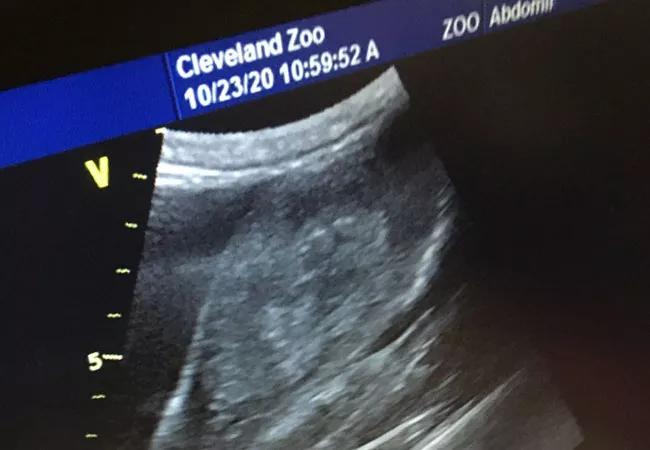
About three months ago, Julian Peskin, MD, an Ob/Gyn at Cleveland Clinic, was given a remarkable opportunity to collaborate on a unique case.
Advertisement
Cleveland Clinic is a non-profit academic medical center. Advertising on our site helps support our mission. We do not endorse non-Cleveland Clinic products or services. Policy
Veterinarians from the Cleveland Metroparks Zoo were concerned about the health of Freddy, a 230-pound, 46-year-old female gorilla, when they called Dr. Peskin to ask him to take a look. Given Dr. Peskin’s skill and experience, the Zoo team asked to collaborate on the procedure. Knowing he would need assistance, Dr. Peskin brought his mentee, Catherine Caponero, DO, along to conduct an ultrasound.
“We were able to confirm the presence of a mass on the uterus and, after biopsy, we were concerned about possible malignancy,” says Dr. Peskin.
“We were able to confirm the presence of a mass on the uterus and, after biopsy, we were concerned about possible malignancy,”
says Dr. Peskin.
Hysterectomies in gorillas are very rare. “This was extraordinary. It was an amazing opportunity to help,” Dr. Peskin says.
“Obviously, at first there were some things that felt a little bit different than a typical hysterectomy,” Dr. Peskin recalls. “But honestly, it was essentially the same as operating on a human. Her anatomy was identical. We made the same incisions through the same layers.”
The surgery went very well, with perhaps the main difference being Freddy’s recovery. “Generally, we keep patients in the hospital for 1-3 days. But it was important to reunite her with the gorilla troop to maintain socialization among the group,” Dr. Peskin says.
“It was a remarkable experience. It was just eye-opening to realize how similar she is to us and how much emotion there was with her troop. The veterinarians told us that after Freddy returned, Mokolo (the silverback) would round up the other three female gorillas and encourage them to sit with Freddy… It was an absolutely amazing experience.”
Advertisement
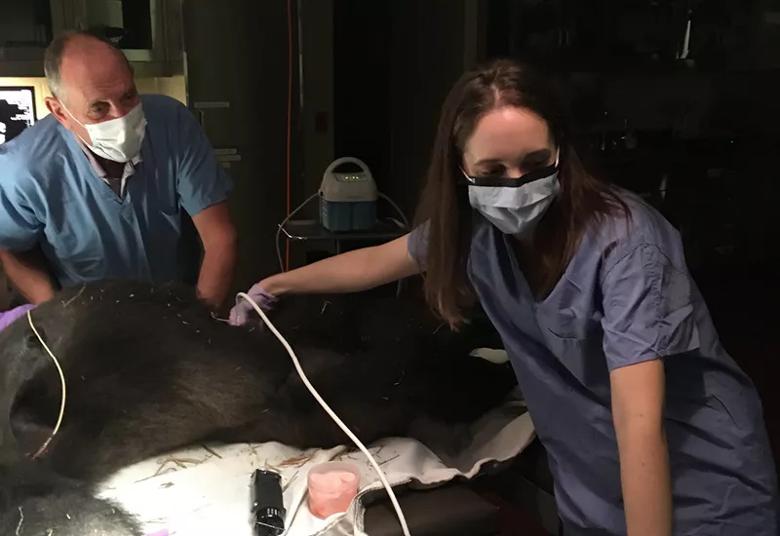
Image content: This image is available to view online.
View image online (https://assets.clevelandclinic.org/transform/ae174a72-6736-44af-9006-4565c750ec11/21-CCC-2069608-Peskin-Gorilla-Training-2-1_jpg)
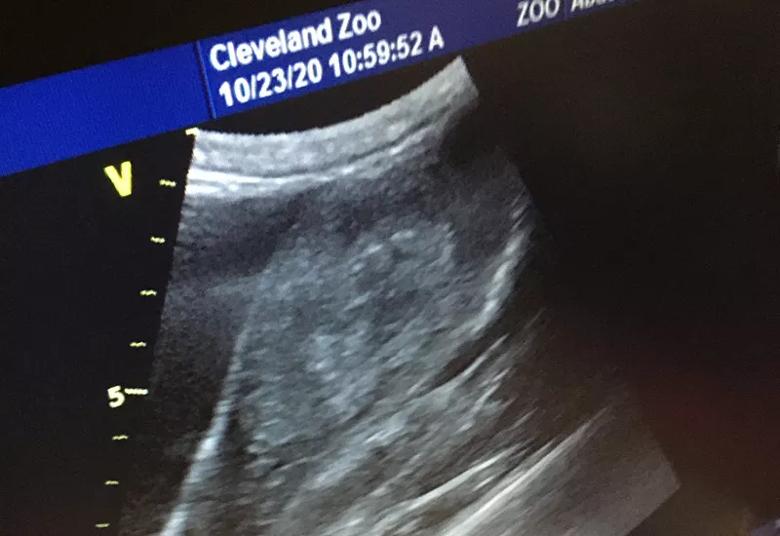
Image content: This image is available to view online.
View image online (https://assets.clevelandclinic.org/transform/b7fabdb1-2420-4fcf-adc9-1f779c8b2fe8/21-CCC-2069608-Peskin-Gorilla-Training-9-1_jpg)
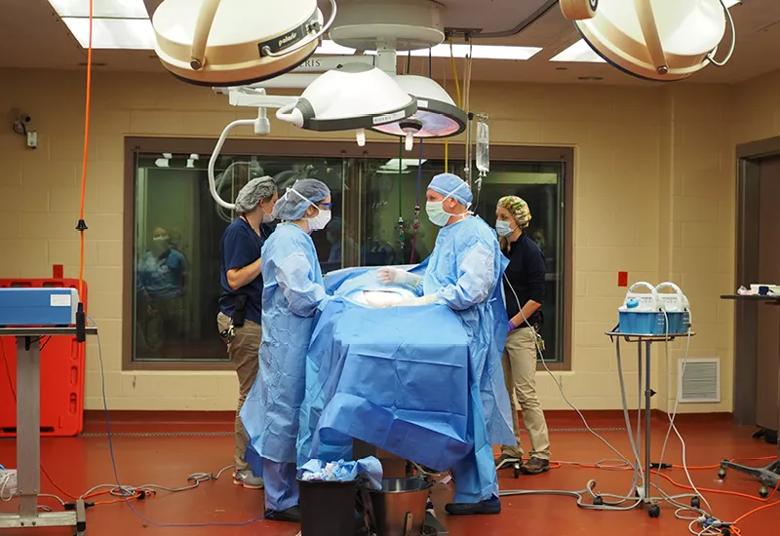
Image content: This image is available to view online.
View image online (https://assets.clevelandclinic.org/transform/afcfbc64-a756-4433-9562-4af3e5b043b5/21-CCC-2069608-Peskin-Gorilla-Training-7_jpg)
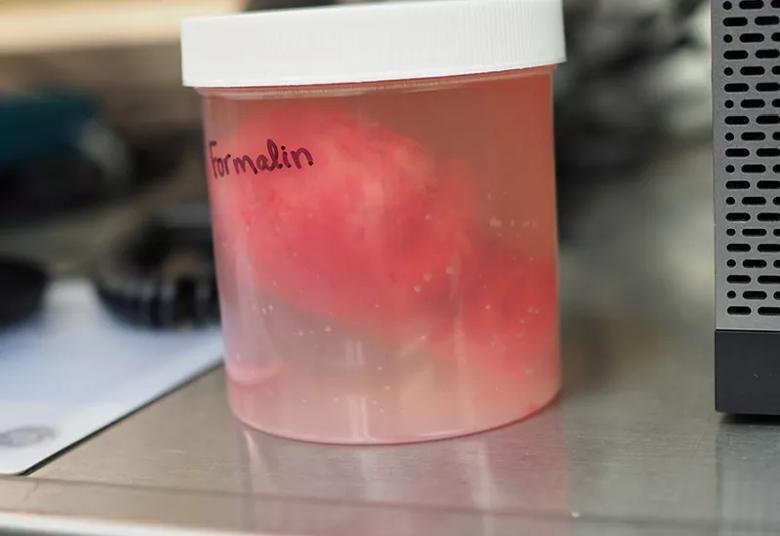
Image content: This image is available to view online.
View image online (https://assets.clevelandclinic.org/transform/050b7d09-b37a-4838-a6ee-3d284c17d2ee/21-CCC-2069608-Peskin-Gorilla-Training-10_jpg)
Dr. Peskin says he brought Dr. Caponero along because she has great hands. But it’s clear that there’s more to this relationship than surgical prowess. As her mentor at Cleveland Clinic, Dr. Peskin relishes the opportunity to operate with Dr. Caponero every Monday. There’s mutual respect and admiration.
“At Cleveland Clinic, we don’t just send new surgeons into the operating room to perform complicated procedures. We have an excellent mentorship program. I was thrilled to have Dr. Caponero at my side,” Dr. Peskin says.
The experience at the zoo was also life-changing to Dr. Caponero. “Mentorship is very important to me as a brand new attending,” she says. “I feel very grateful to be connected with Dr. Peskin as I begin my career. Being an attending surgeon is a very different thing than being a resident – it is reassuring to have another set of [more experienced] eyes helping me continue to improve my technique. I am also trained in ultrasound, and it was nice to be able to show Dr. Peskin something new.”
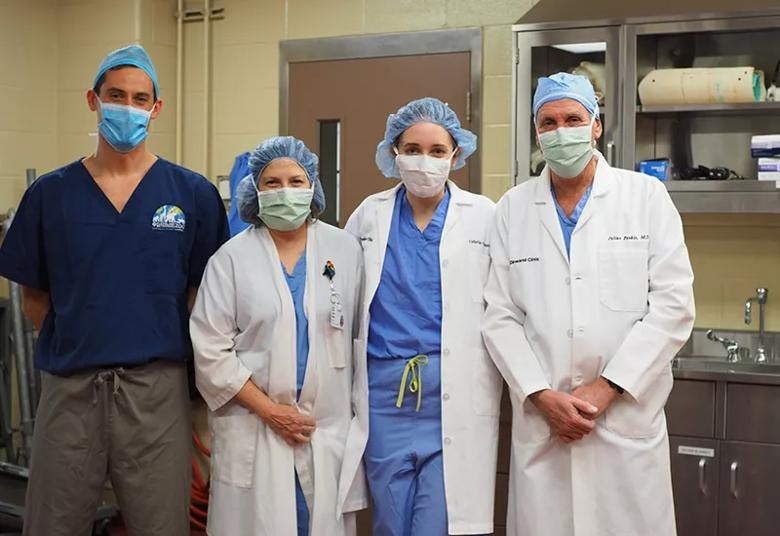
Image content: This image is available to view online.
View image online (https://assets.clevelandclinic.org/transform/9c9401e8-d5bd-4a62-a755-f333aa761a10/21-CCC-2069608-Peskin-Gorilla-Training-8_jpg)
From left to right: Mike Selig, DVM, Cleveland MetroparksZoo, with Cleveland Clinic’s Jean Metz, PA-C, Catherine Caponero, DO, and Julian Peskin, MD, MBA.
Dr. Peskin grew up in South Africa with a love for animals. “I got to love animals in the wild,” he says. “One of the things I love about the Cleveland Metroparks Zoo is its support of animal conservation projects around the world. There’s a lot of research that goes on right here in Cleveland that gets translated into the wild. I’m very passionate about the work I do at the zoo, raising money for conservation so that one day our kids will still see animals in the wild. I mainly help fundraise for the Cleveland Zoological Society, so this experience with Freddy was really unique.”
Advertisement
When asked if he ever experiences professional burnout, Dr. Peskin said yes, of course. “But the truth is, I love what I do every day. I’ve been an Ob/Gyn for more than 30 years, and I’ve learned so much about life talking to my patients. I feel so connected to their lives, not just the illnesses or whether or not they’re having babies. I really believe this appreciation translates into my clinical practice, and I have that same passion for wildlife and animal conservation.”
Despite his profound satisfaction with his career, Dr. Peskin recalls a philanthropist once telling him: “I know you love what you do, but you’ll get the greatest amount of satisfaction by doing something for which there is no financial reward.”
“And she was right,” Dr. Peskin says. “Words can’t describe how rewarding it is to walk around the zoo and see the animals living in philanthropy-funded habitats. It’s as rewarding for me as when I have a patient deliver a healthy baby after struggling with fertility.”
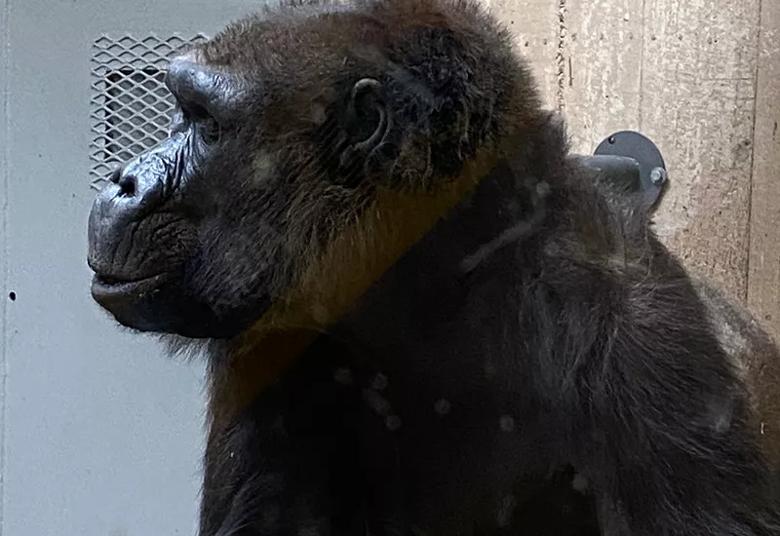
Image content: This image is available to view online.
View image online (https://assets.clevelandclinic.org/transform/07253d40-de1e-4947-89ba-36cd9fb578d4/21-CCC-2069608-Peskin-Gorilla-Training-5-1_jpg)
Freddy, six weeks post-op.
Dr. Caponero echoes this sentiment: “I feel privileged in general to be able to operate on women, to help them throughout their lives, from their teens into their 90s. But working with animals is a completely different experience of wonder and awe. You can see how similar and different we are at the same time. It really closes the loop from an evolutionary perspective, allowing us to help other species with the science of humans,” she concludes.
Advertisement
Advertisement

Advanced software streamlines charting, supports deeper patient connections

How holding simulations in clinical settings can improve workflow and identify latent operational threats

Interactive Zen Quest experience helps promote relaxing behaviors

Cleveland Clinic and IBM leaders share insights, concerns, optimism about impacts

Cleveland Clinic partners with Palantir to create logistical command center

A Q&A with organizational development researcher Gina Thoebes

Cleveland Clinic transformation leader led development of benchmarking tool with NAHQ

Raed Dweik, MD, on change management and the importance of communication